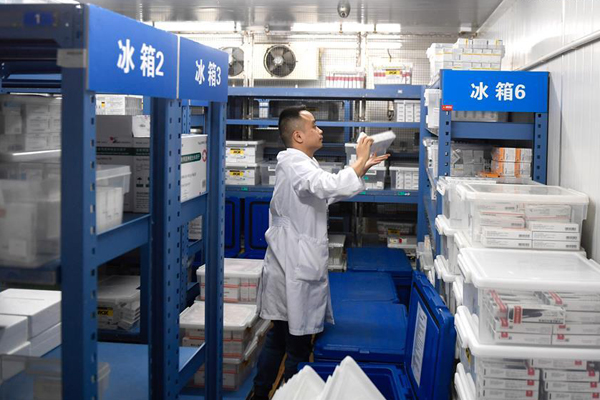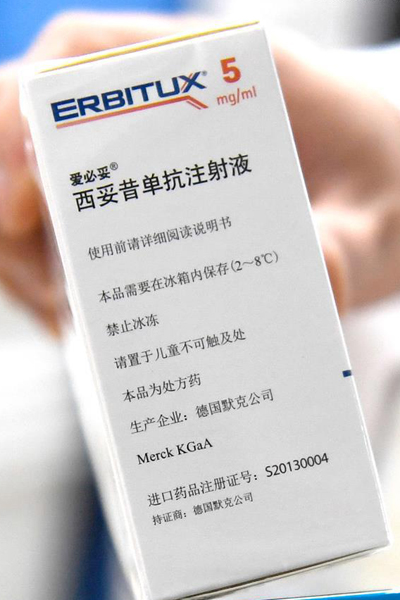
A staff member manages drugs at the pharmacy of the second affiliated hospital of Zhejiang University School of Medicine in Hangzhou, East China’s Zhejiang province, Oct 10, 2018. China’s drug authority on Oct 10 approved inclusion of 17 anti-cancer drugs in the government’s basic medical insurance programs.[Photo/Xinhua]
China has included 17 more cancer drugs in its national basic medical insurance program, the latest progress in government efforts to make drugs more affordable for cancer patients.
The patented drugs are among 44 cancer drugs selected by the National Healthcare Security Administration in June for negotiations on lowering their prices and inclusion in the list of drugs eligible for reimbursement through the medical insurance program, the administration said on Oct 10.
The retail prices of the 17 drugs will fall by about 57 percent on average, and most of the imported drugs will become cheaper than in neighboring countries and regions, the administration said.

Photo taken on Oct 10, 2018 shows an anti-cancer drug which is newly included in the government’s basic medical insurance programs in Hangzhou, East China’s Zhejiang province, Oct 10, 2018.[Photo/Xinhua]
The price of Erbitux, a drug produced by German pharmaceutical company Merck to treat rectal cancer, has been reduced to 1,295 yuan ($187) a bottle, down from around 4,200 yuan last year.
As the drugs will become reimbursable after being included in the medical insurance program, patients are expected to spend even less on them, the administration said.
The drugs treat cancers including lung, kidney and rectal cancers, and all of them have proved effective and are urgently needed by patients, it said. Ten are new drugs that were not available for use until last year, it said.
China started price negotiations with pharmaceutical companies to reduce the prices of cancer drugs and other drugs that treat serious diseases in 2016. After successful negotiations the drugs can be included in the national medical insurance program, helping drug producers promote sales.
In July last year, the Ministry of Human Resources and Social Security announced that following price negotiations, 36 drugs would be included in the national basic medical insurance program. Fifteen were cancer drugs, and their prices were reduced by between 30 and 70 percent, the ministry said.
China has taken a series of measures to reduce the financial burden on cancer patients, including scrapping tariffs for all imported cancer drugs and including more drugs in the national basic medical insurance program.
For many reasons, including higher taxes levied during their circulation, many cancer drugs are more expensive in China than in many other countries, said Zhao Ping, president of the Cancer Foundation of China.
In addition to cutting costs incurred during circulation, the most effective way to improve the affordability of cancer drugs is to include them in the medical insurance program, he said.
